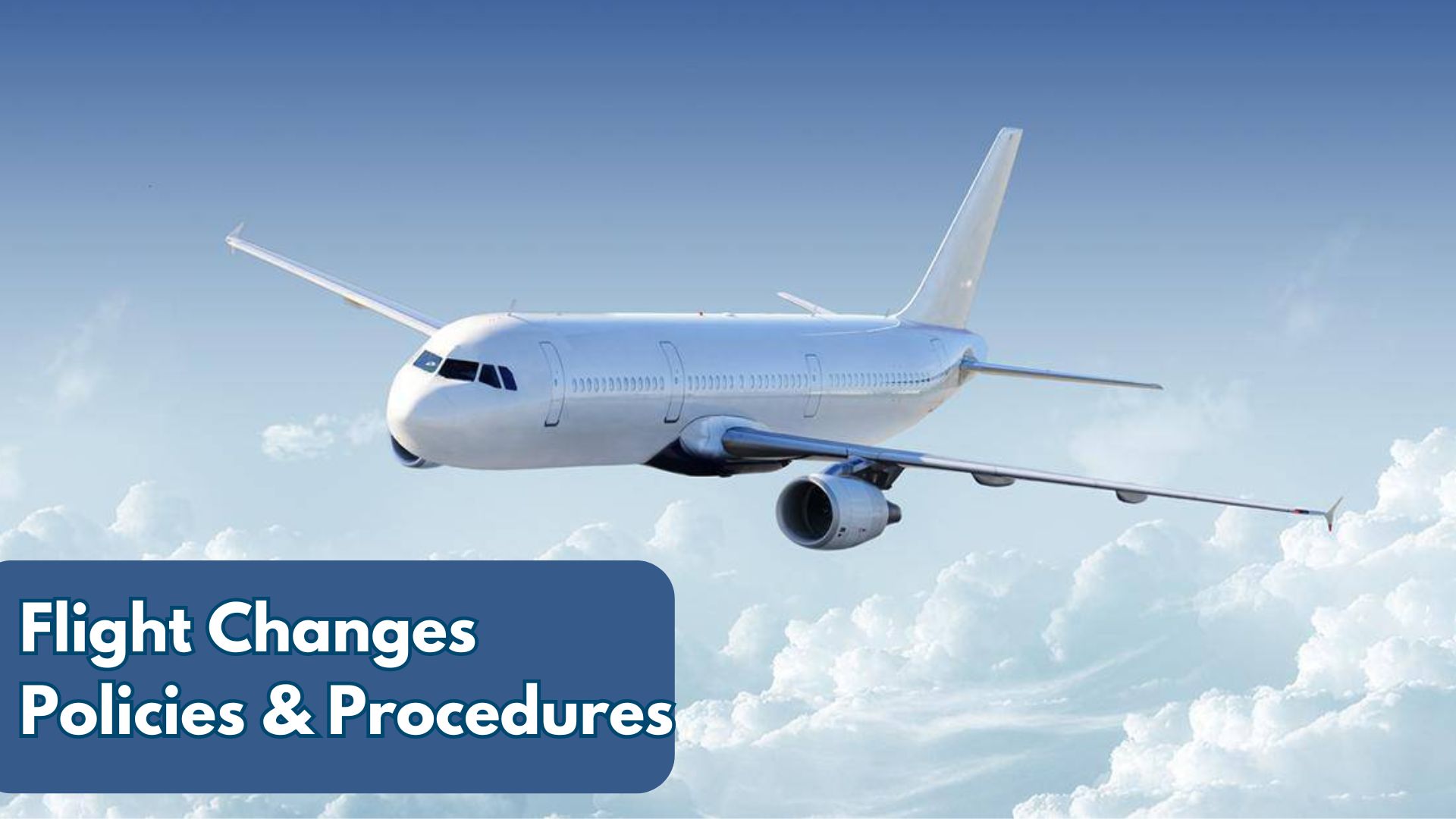In the world of travel, plans can change in the blink of an eye. Whether it’s due to unexpected circumstances, shifting schedules, or simply a change of heart, the need to cancel or change a flight is a reality many travelers face. However, the process of altering flight plans isn’t always straightforward, and understanding the policies and procedures surrounding flight changes is crucial for navigating this terrain effectively.
The Importance of Knowing Your Rights
Before delving into the specifics of flight change policies, it’s essential to recognize that as a passenger, you have rights. Airlines operate under a set of regulations and guidelines that govern their interactions with customers, including rules related to cancellations, changes, and refunds. Familiarizing yourself with these rights empowers you to advocate for yourself and make informed decisions when faced with unexpected changes to your travel itinerary.
Cancellation vs. Change: Understanding the Difference
Firstly, it’s important to distinguish between cancelling a flight and making changes to an existing booking. When you cancel a flight, you’re essentially opting out of the entire reservation, while making a change involves modifying specific aspects of your travel plans, such as the date, time, or destination.
The timelines and fees associated with cancellations and changes can vary significantly depending on the airline, the type of ticket purchased, and the specific circumstances surrounding the alteration. Some airlines offer flexible booking options that allow for changes with minimal or no fees, while others have more stringent policies that may incur hefty charges.
Know Your Airline’s Policy
Each airline has its own set of rules and procedures governing flight changes and cancellations, so it’s essential to familiarize yourself with the policies of the carrier you’re flying with. These policies are typically outlined in the terms and conditions of your ticket purchase, which you should review carefully before finalizing your booking.
Key factors to consider when examining an airline’s policy include:
- Timeframe: Airlines often impose deadlines for making changes or cancellations without incurring additional fees. These deadlines can vary from several hours to several weeks before the scheduled departure time.
- Fees: Many airlines charge fees for making changes or cancellations to a flight, particularly for non-refundable tickets. These fees can range from a nominal amount to the cost of the entire ticket, so it’s essential to understand the financial implications before proceeding with any alterations.
- Flexibility: Some airlines offer more flexibility than others when it comes to making changes to bookings. This may include options for free changes within a certain timeframe or the ability to apply the value of a cancelled ticket towards future travel.
- Exceptions: Certain circumstances, such as medical emergencies or natural disasters, may warrant exceptions to the airline’s standard policies. It’s worth checking if your situation qualifies for special consideration and what documentation may be required to support your request.
Strategies for Minimizing Costs
Navigating flight changes can be a costly endeavor, but there are strategies you can employ to mitigate expenses:
- Book Flexible Tickets: If flexibility is a priority, consider purchasing a flexible or refundable ticket that allows for changes with minimal or no fees. While these tickets may be more expensive upfront, they offer greater peace of mind in the event of unforeseen changes.
- Monitor Fare Changes: Keep an eye on fluctuations in ticket prices for your desired route. Some airlines offer policies that allow you to rebook at a lower fare if the price drops after you’ve made your reservation.
- Purchase Travel Insurance: Investing in travel insurance can provide an added layer of protection against unexpected cancellations or disruptions to your plans. Be sure to read the policy carefully to understand what is covered and any limitations or exclusions that may apply.
- Utilize Loyalty Programs: Members of airline loyalty programs may be eligible for waived fees or other benefits when making changes to their bookings. Check with your airline to see if you qualify for any perks based on your membership status.
Navigating Changes During COVID-19
The COVID-19 pandemic has introduced unprecedented challenges for travelers, with flight schedules and policies subject to frequent changes in response to evolving public health concerns. Many airlines have implemented flexible booking policies and waived change fees to accommodate passengers affected by disruptions caused by the pandemic.
If your travel plans are impacted by COVID-19-related restrictions or concerns, it’s essential to stay informed about the latest updates from your airline and to reach out to their customer service team for assistance. Be prepared to provide any necessary documentation, such as proof of a positive COVID-19 test or official travel advisories, to support your request for changes or refunds.
Conclusion
Navigating flight changes can be a complex and sometimes frustrating process, but armed with knowledge of your rights and the policies of your chosen airline, you can approach the situation with confidence. Whether you’re facing a last-minute schedule change or reconsidering your travel plans altogether, understanding the options available to you and being proactive in seeking assistance from your airline can help minimize stress and ensure a smoother journey. By staying informed and prepared, you can navigate the twists and turns of travel disruptions with greater ease and resilience.







